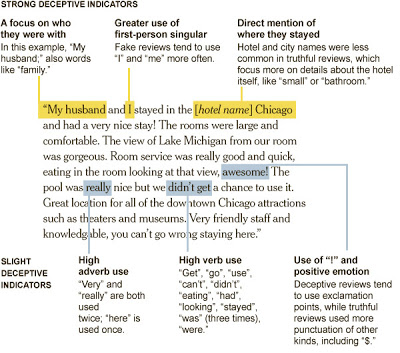Aren’t you glad you’re not a kid going to a private Christian school in Perth, Australia? Because if you were, you’d have assignments like this:
Gay sex ‘sickest of sins’
CHILDREN have been asked whether homosexuality is “the sickest sin” in a school assignment.
The homework given to 14 and 15-year-olds at Armadale Christian College, also also points them to bible quotes describing homosexuality as an “abomination”, and describes “coming out of the closet” as “open sinning”.
Way to go, Christians. Imagine you’re 15, trying to figure out what your sexuality is, and you get handed that as homework. High school students are already cruel enough about ferreting out the gay kids in their midst, without the teachers piling on.
Another question asked what God said about homosexuality and pointed to Bible quotes for the answer, which called it an “abomination”.
The assignment also stated that homosexuality was a “compromise for the need to be loved and accepted”, resulting for many from “low self-esteem (and) gender emptiness”.
Also on the assignment was: “Many people say that homosexuality is an inborn trait. Is a person born greedy, jealous, malicious, gossiper, slanderer, thief, child abuser, serial killer?”
Because being gay is just like all those other things.
I managed to procure a copy of the actual assignment (PDF), and yeah, it’s pretty much the standard anti-gay stuff that gives Christians a hate-on, plus Bible scriptures.
Homosexuality
“Do you not know that the unrighteous will not inherit the kingdom of God? Do not be deceived. Neither fornicators, nor adulterers, nor homosexuals, nor sodomites…” (1 Corinthians 6:9)
Preliminary Thoughts
1) What is homosexuality?
2) Is homosexuality a new practice? Why do we hear so much about it now?
3) What are some reasons people give to justify homosexual practices?
a)
b)
c)
4) Why are some people tempted with homosexual feelings and others are not?
5) Are feeling and temptations wrong, or do they become wrong when we do something about them (James 1:12–15)?
6) Is there a limit to the power of any temptation (1 Corinthians 10:13)?
7) The subject of homosexuality is confusing because everyone calls it something different.
• Is homosexuality a physical or genetic disease?
• Is homosexuality “the sickest sin there is?“
• Is homosexuality “natural” for some people, being an inborn trait (Romans 1:26–27)?
• Is homosexuality a legitimate “alternative lifestyle” (Genesis 2:24; Hebrews 13:4)?
8) Most people seem to have no idea how homosexuality can be a temptation to anyone. Therefore we are not very helpful to a person who is struggling with the temptation (cf. Galatians 6:1–2; Jude 22–23). Maybe that can change if we understand a few general things about homosexuality.
• God makes every person unique (Psalm 139:13–16; 1 Corinthains 12:12–27). He may be different, but God does not make him “gay” (James 1:13).
• Homosexuality generally has little to do with sex. The sexual involvement with another person of the same sex, is a compromise for the need to be loved and accepted.
• Some inborn factors may contribute to the development of homosexual attractions, but these are not sufficient to make a person homosexual (James 1:14–15; 1 Corinthians 10:13).
• Factors which lead to each person’s struggle with homosexual attraction are different, but certain stages are common to many—low self-esteem, gender emptiness, gender attraction, sexual attraction, homosexual reinforcement, homosexual identity.
What Does The Bible Say?
1) Is homosexuality a new practice (Genesis 19:1–29; Judges 19:1–28; 1 Kings 14:24; 15–12; 22:46; 2 Kings 23:7)” Is there anything new (Ecclesiastes 1:9–10)?
2) What did God say about homosexuality under the Law of Moses (Leviticus 18:22; 20:13)?
3) Many people say homosexuality is an inborn trait. Is a person born greedy, jealous, malicious, gossiper, slanderer, thief, child abuser, serial killer (Mark 7:20–23)? Why would people say that homosexuality is inborn?
4) Is homosexuality a “natural” practice (Romans 1:26–27)?
5) Is homosexuality against God’s law or sanctioned by it (1 Timothy 1:8–10)?
6) Homosexuals advocate “coming out of the closet” and being open with their lifestyle. What does the Bible say about such open sinning (Isaiah 3:9)?
7) Men try to lessen the severity of sin by softening its description. The Bible does not describe homosexuals/lesbians as “gay” or living an “alternative lifestyle“. How does the Bible describe such people?
• 1 Kings 14:24—
• 1 Corinthians 6:9—
• Colossians 3:5—
• Jude 7—
8) What two things does 1 Corinthians 6:9–11 teach us about homosexuality?
9) Those who oppose homosexuality are often called “homophobes” or “gay bashers“. Some people really are—but how would you desribe a caring, concerned Christian who wants to help a person overcome his struggle with homosexuality (1 Corinthians 13:4–7; James 5:19–20)?
Practical Solutions
1) Can a person who is engaged in homosexual practices remain in that condition? What much he/she do (Ephesians 5:1–14)?
2) Does God care about our struggle? What are some practical ways that God gives to overcome this temptation (1 Corinthians 10:13)?
• How did Jesus overcome temptation (Matthew 4:1–11)?
• Who can we turn to for help (Philippians 4:13; 1 John 4:4)?
• How must we respond to the devil’s temptation (James 4:7)?
• What activity helps us as much as anything (Philippians 4:6–7)?
• What do we need to try and master (Philippians 4:8; 2 Corinthians 10:5)?
3) After you rid yourself of this practice, what must you do to keep worse sins from returning (Luke 11:24–26)?
4) How is the church to respond to a practicing homosexual who repents (2 Corinthians 2:3–11)?
5) Do you have a closing thought?
Maybe some parents at ACC wouldn’t mind having this assignment plopped down on their child’s desk, but I suspect more than a couple would. And people in the wider community should definitely be concerned that high schoolers are being exposed to the hateful teachings of the Christian bible — subsidised by tax dollars, no less. Remember, this is happening not in the American South, but in good old secular Perth WA, today. It can happen here.
If you want to write your own answers for this assignment, give it a go in comments.






Recent Comments